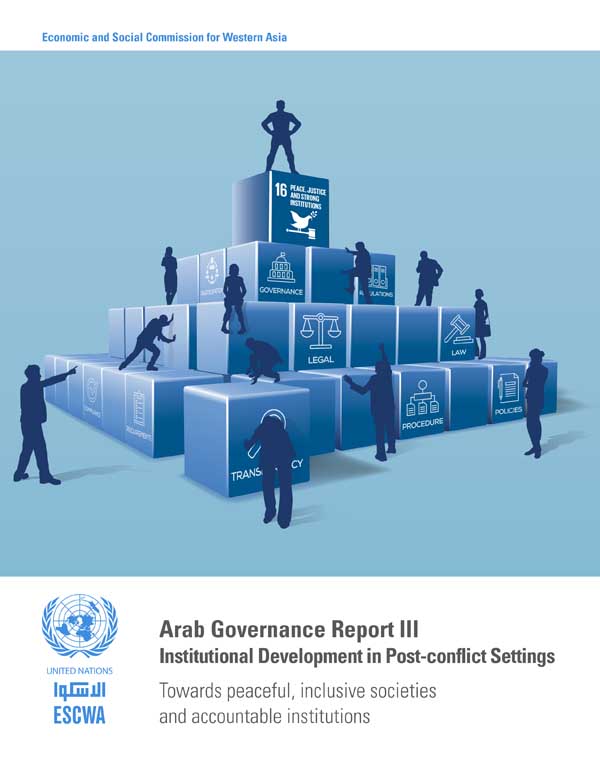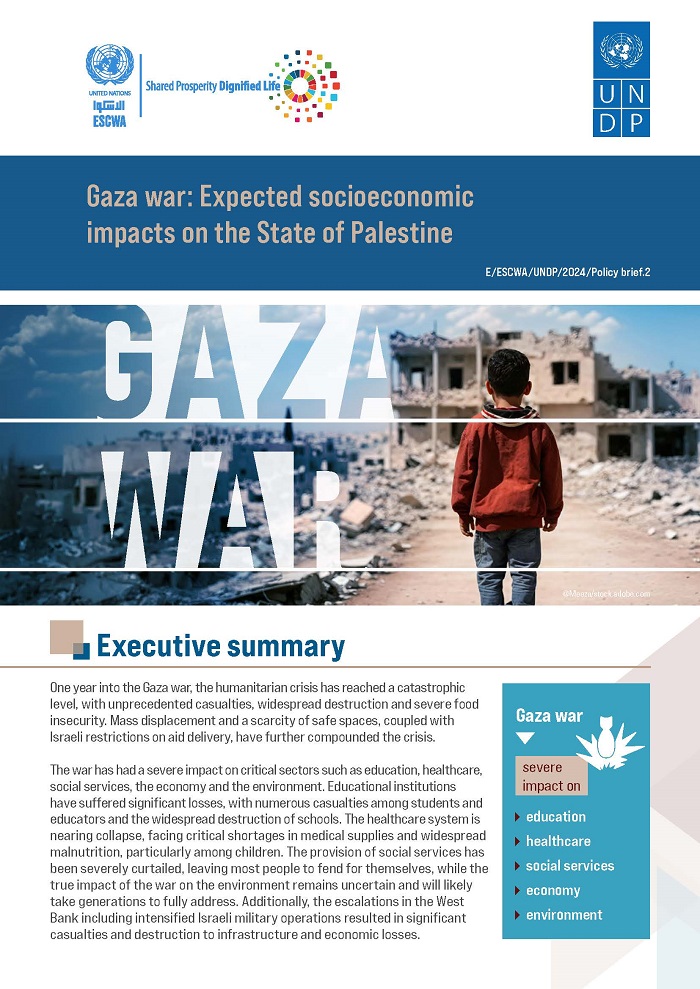
ESCWA Publication: E/ESCWA/ECRI/2017/4
Country: Republic of Iraq, State of Libya, Federal Republic of Somalia, Syrian Arab Republic, Republic of Yemen
Publication Type: Reports & studies
Cluster: Governance and Conflict Prevention
Focus Area: 2030 Agenda, Governance & enabling environment, Resilient development & conflict prevention
Initiatives: Governance and institution building, Development challenges
SDGs: Goal 16: Peace, Justice and Strong Institutions
Keywords: Governance, Institution building, Peace, Peacebuilding, Post-conflict reconstruction, Administrative reform, Social security, Security management, Local development, Governance, Decentralization in government, Armed conflicts, Peacebuilding, Gender equality, Institution building, Case studies
Arab Governance Report III: Institutional Development in Post-conflict Settings
January 2018
The third edition of the Arab Governance Report introduces post-war best practices from international and regional experiences. It suggests strategies and policies for Libya and Yemen that focus on the immediate aftermath once combat ceases and a future political settlement. With the prioritizationand sequencing of post-war policies dependent on distinctive historical trajectories, these road maps are tailored to the unique circumstances of each case.
The objective is to initiate debate on institution building and its role in supporting sustainable peace in both country contexts. It helps elucidate the design of post-conflict, consensus-based processes for reforming governance structures and rehabilitating key institutions after political settlement. The goal of effective institution building is to advance mechanisms to preserve and consolidate the peace process, and enhance State legitimacy through sustainably developing its capacity to take on thebasic requirements of governance.
Related content
2030 Agenda
, Governance & enabling environment
, Resilient development & conflict prevention
,
The third edition of the Arab Governance Report introduces post-war best practices from international and regional experiences. It suggests strategies and policies for Libya and Yemen that focus on the immediate aftermath once combat ceases and a future political settlement. With the prioritizationand sequencing of post-war policies dependent on distinctive historical trajectories, these road maps are tailored to the unique circumstances of each case.
The objective is to initiate debate on institution building and its role in supporting sustainable peace in both country contexts. It helps elucidate the design of post-conflict, consensus-based processes for reforming governance structures and rehabilitating key institutions after political settlement. The goal of effective institution building is to advance mechanisms to preserve and consolidate the peace process, and enhance State legitimacy through sustainably developing its capacity to take on thebasic requirements of governance.



